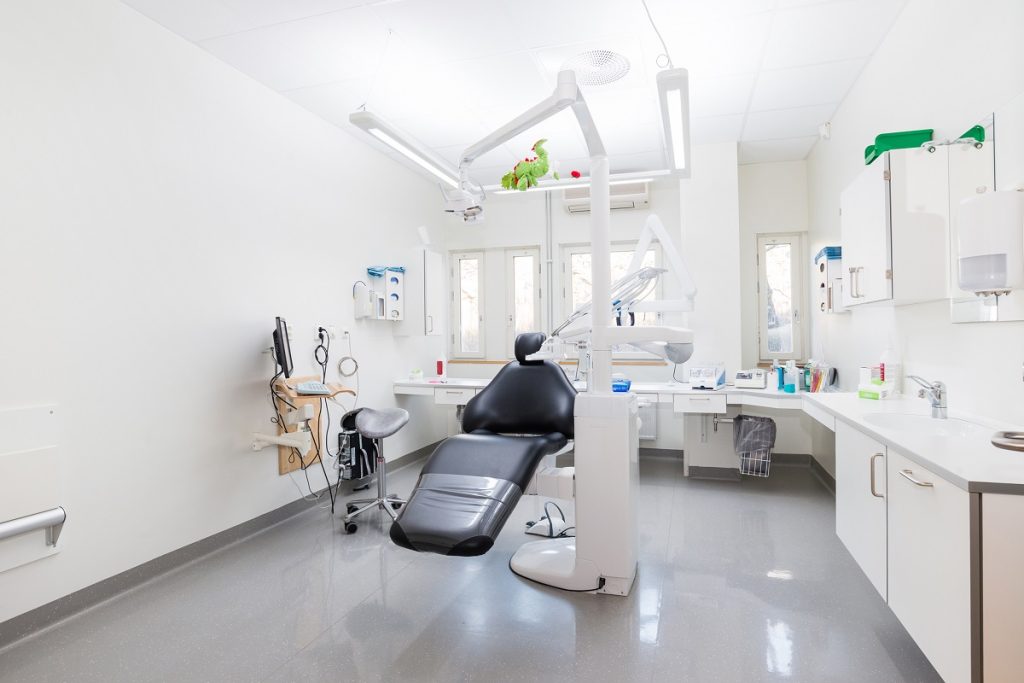- Private dental clinics can increase productivity and reduce costs by investing in new technologies such as radiography machines, intraoral cameras, 3D imaging systems, and computer-guided implant placement systems.
- Software solutions can automate routine tasks, secure patient records, and enable video conferencing capabilities.
- Telehealth technology enables more effective management of chronic conditions, follow-up care, and patient monitoring while allowing virtual appointments.
- Implementing technological advancements in private dental clinics allows for greater efficiency, cost savings, and improved quality of care for all patients.
The healthcare industry has long been a beneficiary of the latest technological advancements. With technological progress, healthcare has improved its services and become more accessible to a more significant number of people. Technology has enabled healthcare professionals to develop more effective treatments, reduce the time and costs associated with patient care, and improve the overall quality of care.
Technology offers a wide range of benefits for a private dental clinic specifically. Furthermore, technology allows for more efficient instruction of dental hygiene practices and better communication between dentists and patients.
In addition to improving the quality of care for dental patients, technological advancements have also impacted efficiency and cost savings throughout the industry. According to statistics from the American Dental Association (ADA), introducing new technologies into private dental clinics over the past decade has increased productivity by 15% while reducing expenditures by 13%.
If you are running a private clinic, you might be wondering how to take advantage of technological advancements to improve the quality and efficiency of your practice. Here are some potential options for you to consider:
Diagnostics Equipment

Diagnostics equipment is essential for a private dental clinic, as it helps dentists accurately diagnose and treat various dental conditions. Upgrading the diagnostics equipment can ensure patients receive accurate diagnoses and treatments efficiently.
Here are some pieces of diagnostic equipment that private clinics should consider investing in:
Radiography Machines
Radiography machines provide digital X-ray images, allowing dentists to detect more precise details about a person’s teeth and mouth structures. Digital radiography also reduces radiation exposure compared to traditional film X-rays, making it a safer option for patients and staff members.
Intraoral Cameras
Intraoral cameras allow dentists to take pictures inside the patient’s mouth, providing an up-close view of their teeth and gums. This helps dentists better identify any issues or problems with the patient’s oral health before treatment begins, enabling them to create more accurate diagnoses and plans of care.
3D Imaging Systems
3D imaging systems use computed tomography (CT) technology to create detailed 3D images of a patient’s teeth and jaws. This advanced technology helps dentists create treatment plans tailored to each patient’s needs while reducing the risk of surgical complications during procedures such as dental implants or root canals. 3D printing in orthodontics is also gaining traction, allowing dentists to create custom-fit appliances and dental models that are more comfortable for patients. The device can also be used for fabricating custom crowns and bridges.
Computer-Guided Implant Placement Systems
Computer-guided implant placement systems use sophisticated computer software to help guide implant placement into specific locations within the jawbone while reducing the risk of errors or misalignments that could lead to long-term complications. These systems also minimize surgical time and recovery periods, allowing patients to return home sooner than traditional techniques.
Software Solutions

Software solutions can play an integral role in a private dental clinic’s operations, allowing dentists to streamline their processes and become more efficient. Software solutions allow clinics to automate routine tasks, such as patient appointment scheduling, sending out automated reminders for upcoming appointments, and managing incoming insurance claims. This can save staff members time and reduce the paperwork that needs to be handled manually.
Software solutions are also beneficial when tracking patient records and ensuring all information is securely stored and easily accessible. Clinics can use electronic health record (EHR) software to keep patient information such as medical histories, medications, allergies, past treatments, test results, digital images, and more. This technology ensures that all records remain secure while providing clinicians easy access to up-to-date patient data when necessary.
Additionally, software solutions can help clinics improve communication between patients and staff by enabling secure video conferencing capabilities for remote consultations or follow-up appointments. Dentists can provide quality care through this virtual platform without needing physical visits or direct contact between patients and staff members.
Telehealth Technology
Telehealth technology is another increasingly popular technological advancement that offers numerous benefits to private dental clinics. Telehealth systems allow healthcare providers to communicate with patients remotely, enabling more effective management of chronic conditions, follow-up care, and patient monitoring.
The telehealth system also allows for virtual appointments, allowing dentists to connect with their patients through a secure platform without needing physical visits or direct contact between the two parties. This can be especially beneficial during pandemics and social distancing when in-person appointments may not be an option or pose too much risk.
Final Thoughts
Technology has enabled countless advancements in the healthcare industry, allowing for greater efficiency, cost savings, and improved quality of care. Private dental clinics can benefit from these technological advancements by investing in diagnostics equipment, software solutions, and telehealth technology to increase productivity while providing better treatments and services to their patients. By implementing a comprehensive approach towards incorporating technological advancements into your practice, you can ensure that your clinic offers the latest innovations and the best possible care for all your patients.
